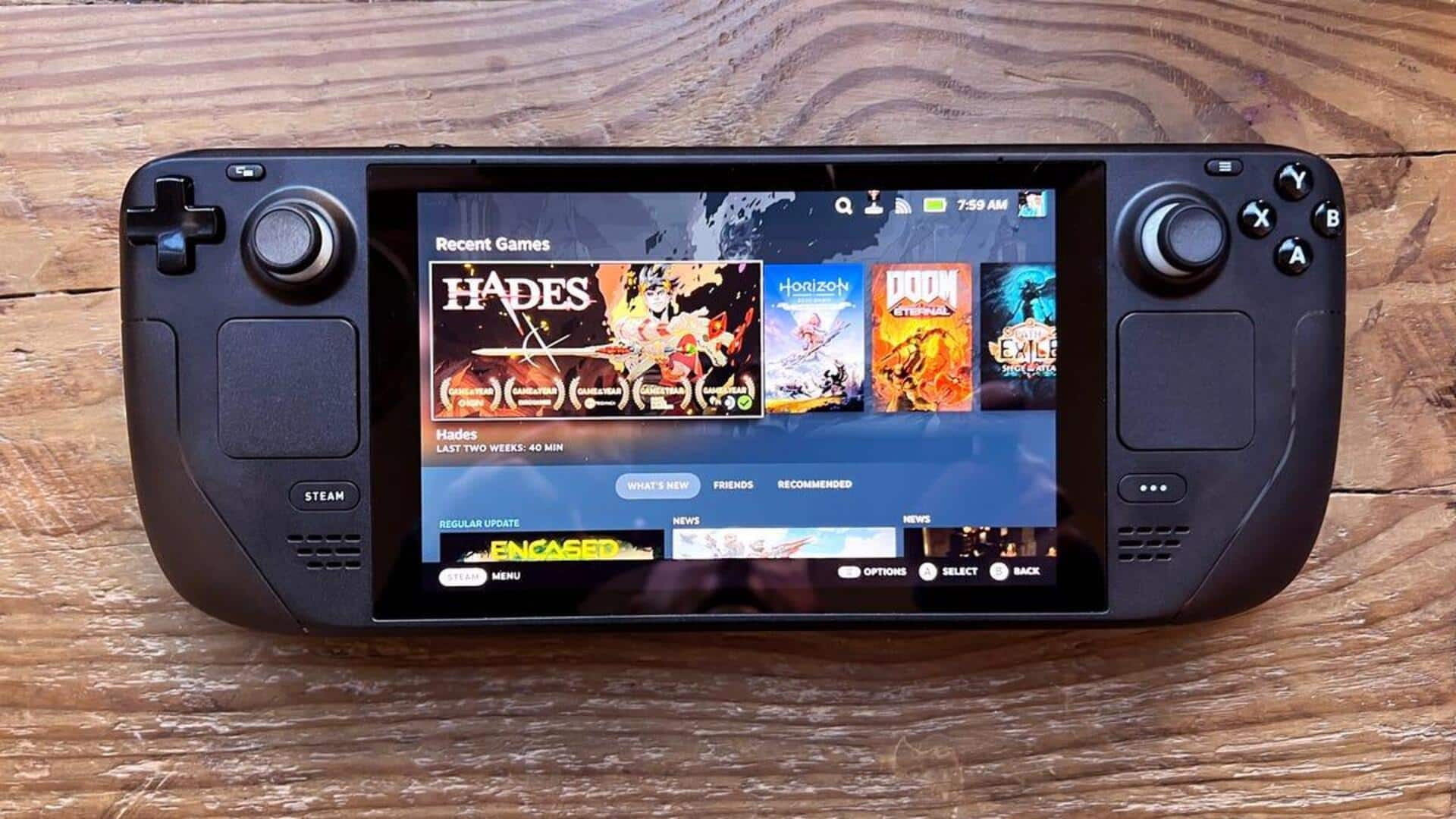
Valve will soon offer SteamOS on third-party handheld gaming PCs
What's the story
Valve, the creator of the popular handheld gaming device Steam Deck, is gearing up to launch its Linux-based operating system SteamOS for third-party hardware.
This information was revealed in the recent software update notes for the Steam Deck.
The notes primarily detailed bug fixes and enhanced support for external controllers, but also included a reference to "extra ROG Ally keys," which is believed to be associated with the buttons on ASUS's ROG Ally handheld PC.
Compatibility expansion
Compatibility with ASUS's ROG Ally
This move aligns with Valve's previous statements regarding its plans to make SteamOS compatible with a broader range of systems.
In 2023, Valve told PC Gamer that a general release of SteamOS was high on their agenda.
The initial plan is to make the OS available on other handhelds and PCs using gamepads, before extending its availability for installation on any PC.
User experience
It could enhance user experience on portable PCs
At present, competing handheld devices like the ROG Ally, Lenovo Legion Go, MSI Claw, Ayaneo, and GPD Win all operate on Windows.
Despite its broader software support compared to SteamOS, Windows can be challenging to navigate on smaller devices that only use gamepad buttons, due to its design for larger screens and keyboards.
The ability to install SteamOS on various portable PCs could significantly improve the user experience.
Optimization hurdles
Challenges in optimizing SteamOS for third-party hardware
Valve's Lawrence Yang disclosed that the development of the Steam Deck OLED had redirected resources from this project.
He also highlighted driver optimization as a significant hurdle in this process.
Many games perform well on the Steam Deck because Valve can fine-tune the SteamOS graphics drivers and shaders for a known hardware configuration.
However, introducing devices from other manufacturers would likely complicate this process.
Clones and pre-installation
SteamOS clones and potential for pre-installed devices
Hobbyists have created SteamOS clones such as Bazzite and HoloISO to support arbitrary hardware.
However, their complex installation process may not align with the pick-up-and-play design goals of handheld PCs.
Also, HoloISO does not officially support NVIDIA GPUs.
Permitting original equipment manufacturers (OEMs) like ASUS to ship devices with SteamOS pre-installed could potentially accelerate the spread of Valve's software.